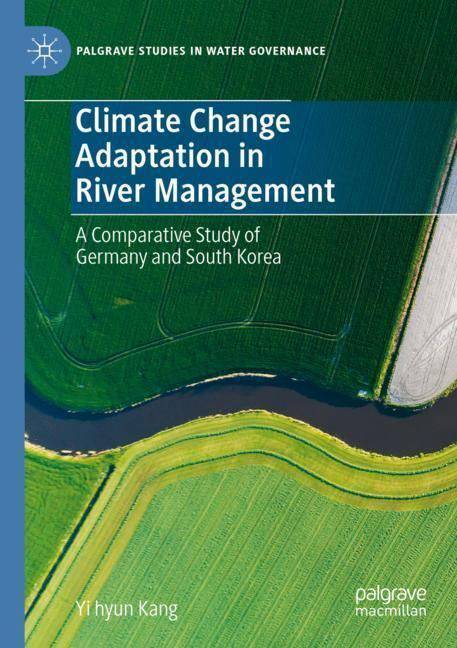
Door een staking bij bpost kan je online bestelling op dit moment iets langer onderweg zijn dan voorzien. Dringend iets nodig? Onze winkels ontvangen jou met open armen!
- Afhalen na 1 uur in een winkel met voorraad
- Gratis thuislevering in België vanaf € 30
- Ruim aanbod met 7 miljoen producten
Door een staking bij bpost kan je online bestelling op dit moment iets langer onderweg zijn dan voorzien. Dringend iets nodig? Onze winkels ontvangen jou met open armen!
- Afhalen na 1 uur in een winkel met voorraad
- Gratis thuislevering in België vanaf € 30
- Ruim aanbod met 7 miljoen producten
Zoeken
Climate Change Adaptation in River Management
A Comparative Study of Germany and South Korea
Yi Hyun Kang
€ 105,45
+ 210 punten
Uitvoering
Omschrijving
This book examines the approaches to climate change adaptation in water governance taken by South Korea and Germany. By comparing their political decision-making processes, this book explores the factors behind their differences. Adaptation to the changing climate is critical to human society and water is the principal medium through which climate change will affect us. Due to high levels of industrialization and population density, flood control is a high priority in both countries' adaptation plans. While South Korea has maintained its engineering-oriented flood control policy for river management, Germany has turned its direction from its long-standing technical approach to more nature-based solutions. The evidence of this study indicates that policy change and stability is the result of discourse and institutional interaction, and thus emphasizes the validity of discursive institutionalism. This book will clearly explain why certain policies are adopted for water management and will be an invaluable contribution to the expanding literature on the socio-political aspects of climate change adaptation.
Specificaties
Betrokkenen
- Auteur(s):
- Uitgeverij:
Inhoud
- Aantal bladzijden:
- 289
- Taal:
- Engels
- Reeks:
Eigenschappen
- Productcode (EAN):
- 9783031104886
- Verschijningsdatum:
- 15/10/2023
- Uitvoering:
- Paperback
- Formaat:
- Trade paperback (VS)
- Afmetingen:
- 148 mm x 210 mm
- Gewicht:
- 371 g

Alleen bij Standaard Boekhandel
+ 210 punten op je klantenkaart van Standaard Boekhandel
Beoordelingen
We publiceren alleen reviews die voldoen aan de voorwaarden voor reviews. Bekijk onze voorwaarden voor reviews.











